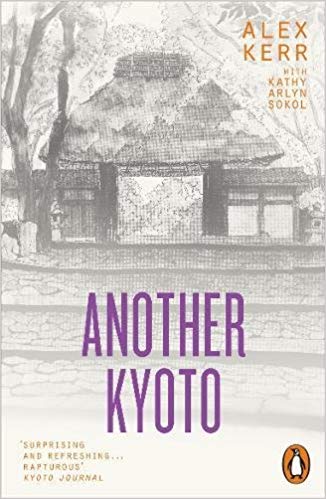
I. In Praise of Shadows [1933] by Junichiro Tanizaki
This persuasive essay by Japanese author Jun’ichirō Tanizaki illuminates the darkest corners of cultural and aesthetic Japan, explaining the country’s traditional preference for imperfection. Tanizaki says that there is an eerie beauty to be distilled from things that at first seem “dark”, “small” or “imperfect” (such as special charm emanating from lacquerware illuminated by candles). Those who are open to experience the imperfect and not afraid to crouch in the dark, will find that special delight. It now appears to me that Tanizaki might have also been influenced by the writings of Yoshida Kenkō, a Buddhist monk.

II. Another Kyoto [2016] by Alex Kerr & Kathy Arlyn Sokol
In this book, Alex Kerr and Kathy Sokol capture and explain the nuances of the Japanese culture by focusing on seemingly mundane objects of the Japanese society, such as walls, gates, tatami mats and screens, opening to us a whole new way of perceiving these attributes of the Japanese culture. In Kerr and Sokol’s book, Kyoto never felt as intimate nor its most distinguishing features better explained.

III. The Japanese: A History in Twenty Lives [2020] by Christopher Harding
I thought this was an exciting read, presenting Japanese history through the lives of twenty distinguished citizens, from mythical Princess Himiko (“Shaman Queen”), who lived in the year 200, to Empress Owada Masako (1963-), an intelligent, well-educated woman, but once a very unlikely contender to the title. It is possible that Harding based his book on Gen Itasaka’s 100 Japanese (People) You Should Know, and those who want to read a more linear history of Japan, can pick up Andrew Gordon’s A Modern History of Japan: From Tokugawa Times to the Present [2019].
Continue reading “10 Books to Read to Understand Japan”

